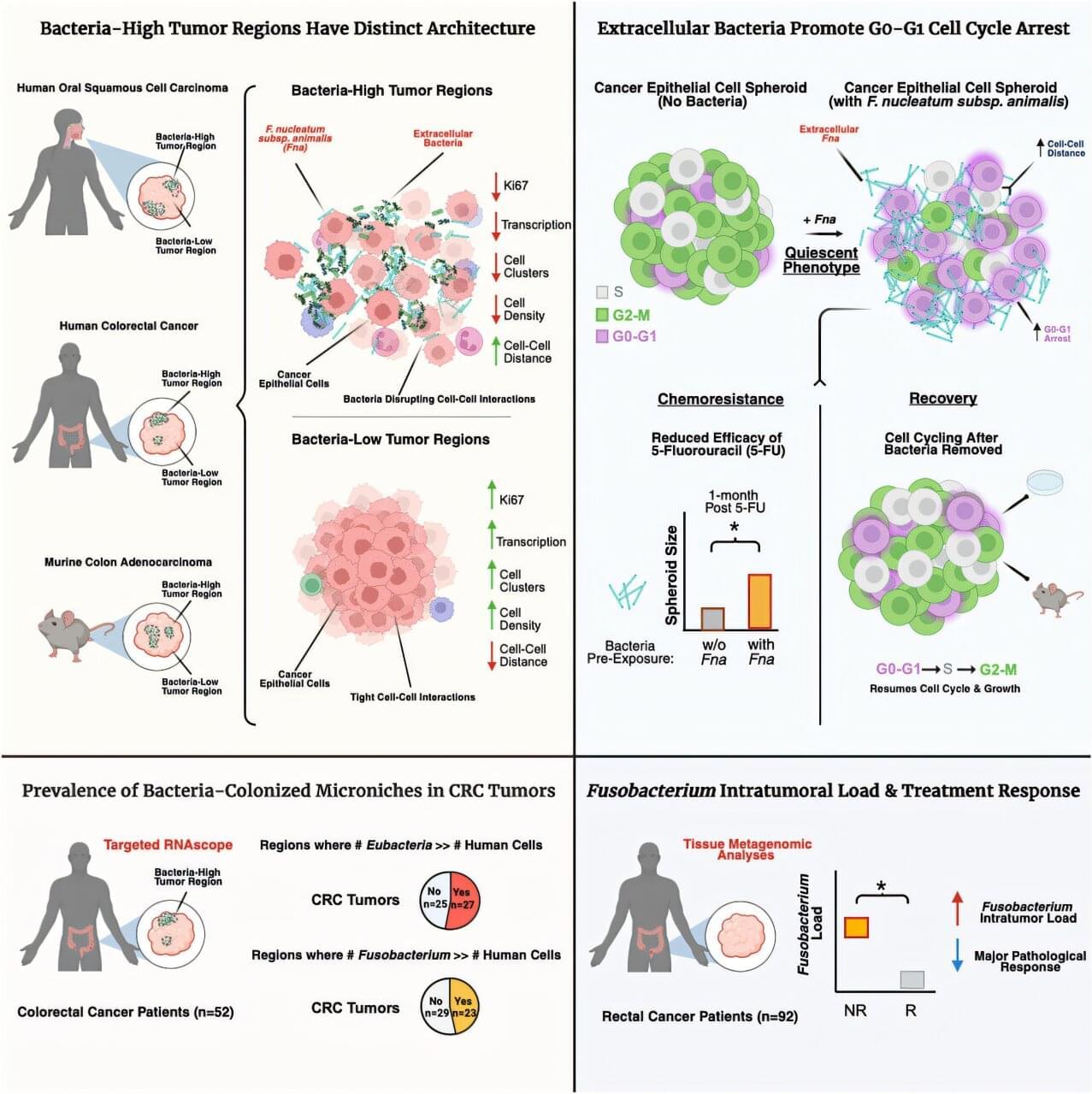Researchers from The University of Texas MD Anderson Cancer Center have discovered a previously unknown mechanism that explains how bacteria can drive treatment resistance in patients with oral and colorectal cancer. The study was published today in Cancer Cell.
Tumor-infiltrating bacteria have been known to impact cancer progression and treatment, but very little is understood about how they do this. The new study shows how certain bacteria—particularly Fusobacterium nucleatum (Fn)—can induce a reversible state, known as quiescence, in cancer epithelial cells. This allows tumors to evade the immune system and resist chemotherapy.
“These bacteria-tumor interactions have been hiding in plain sight, and with new technologies we can now see how microbes directly affect cancer cells, shape tumor behavior and blunt the effects of treatment,” said corresponding author Susan Bullman, Ph.D., associate professor of Immunology and associate member of MD Anderson’s James P. Allison Institute.
